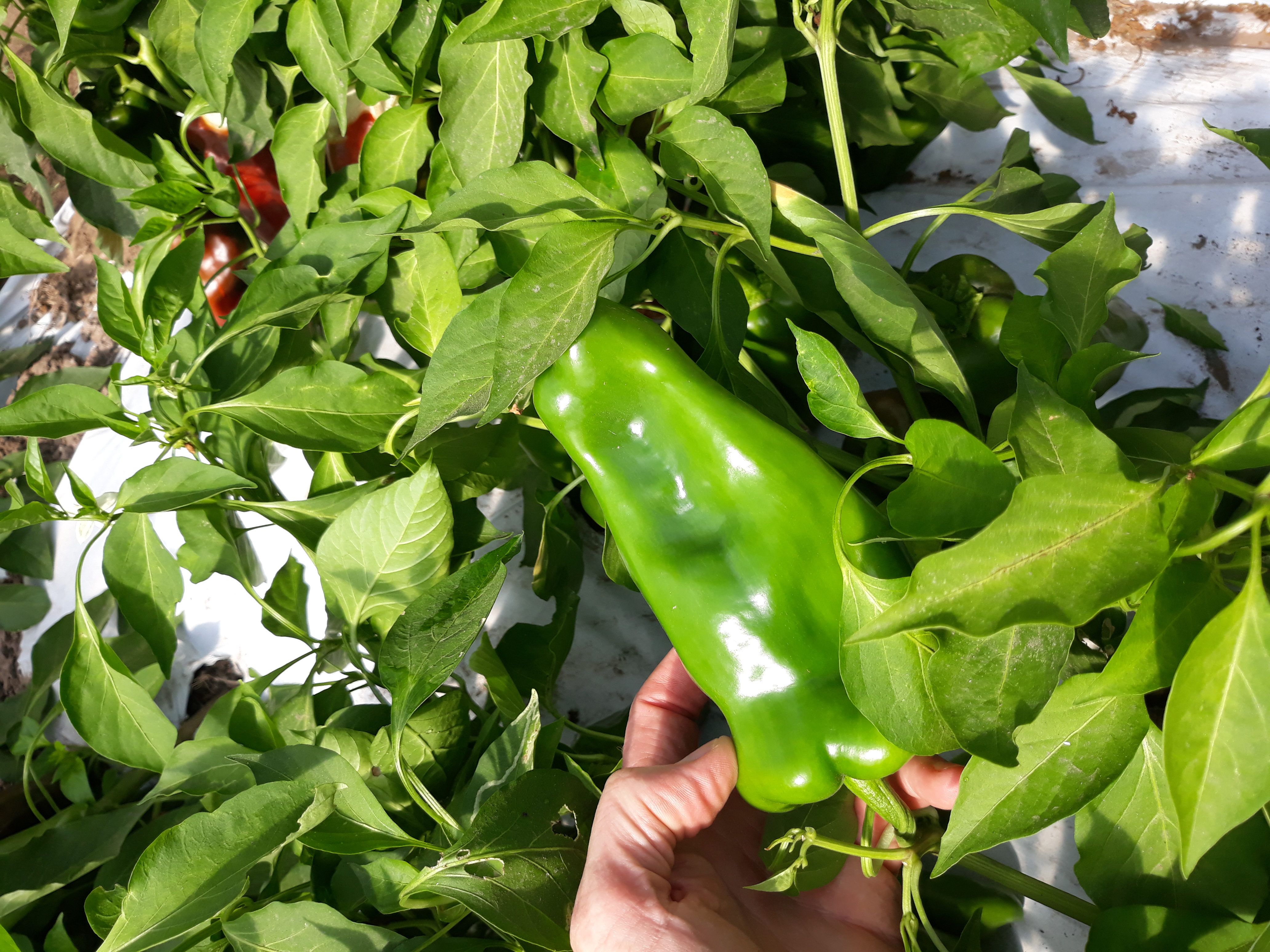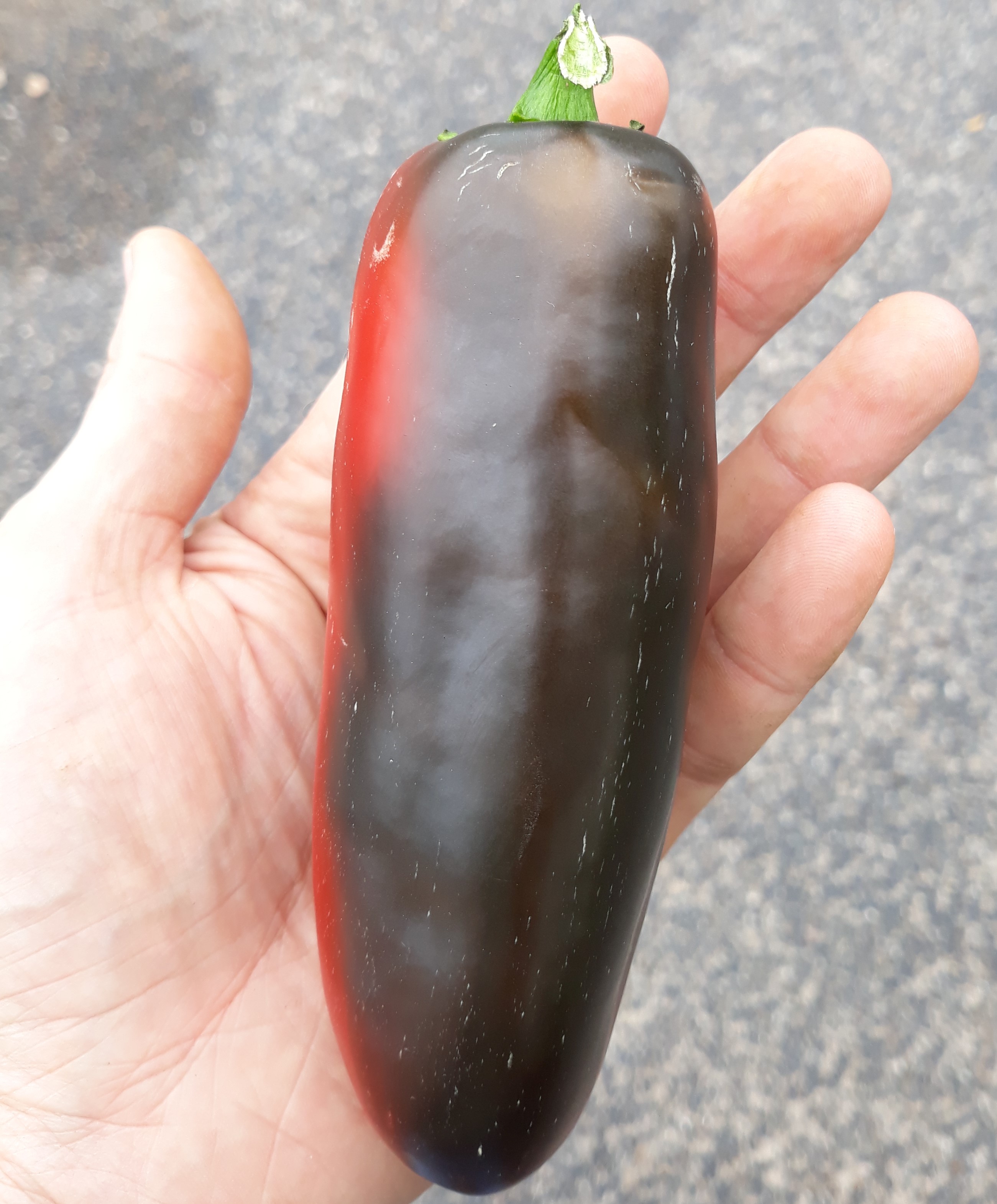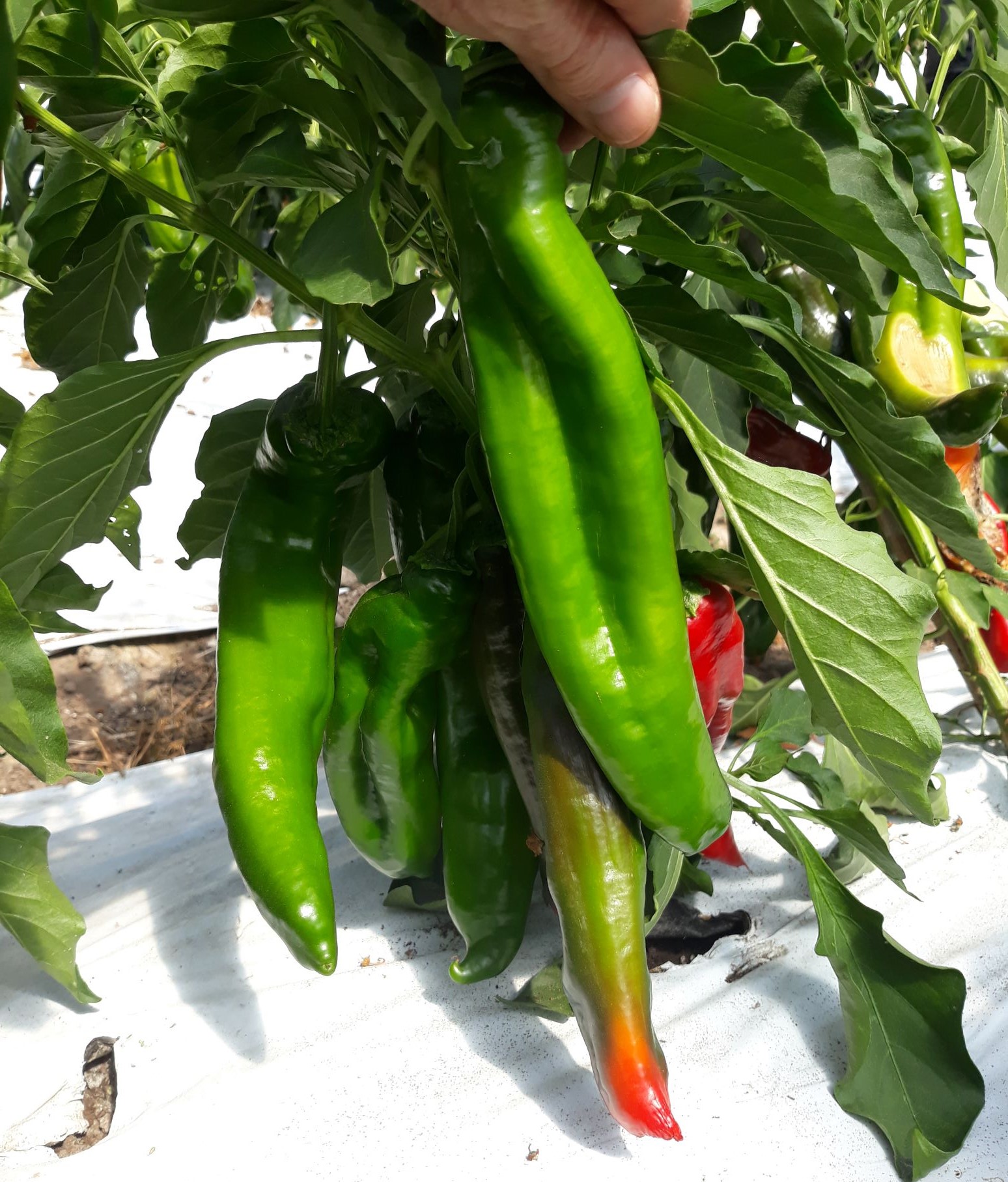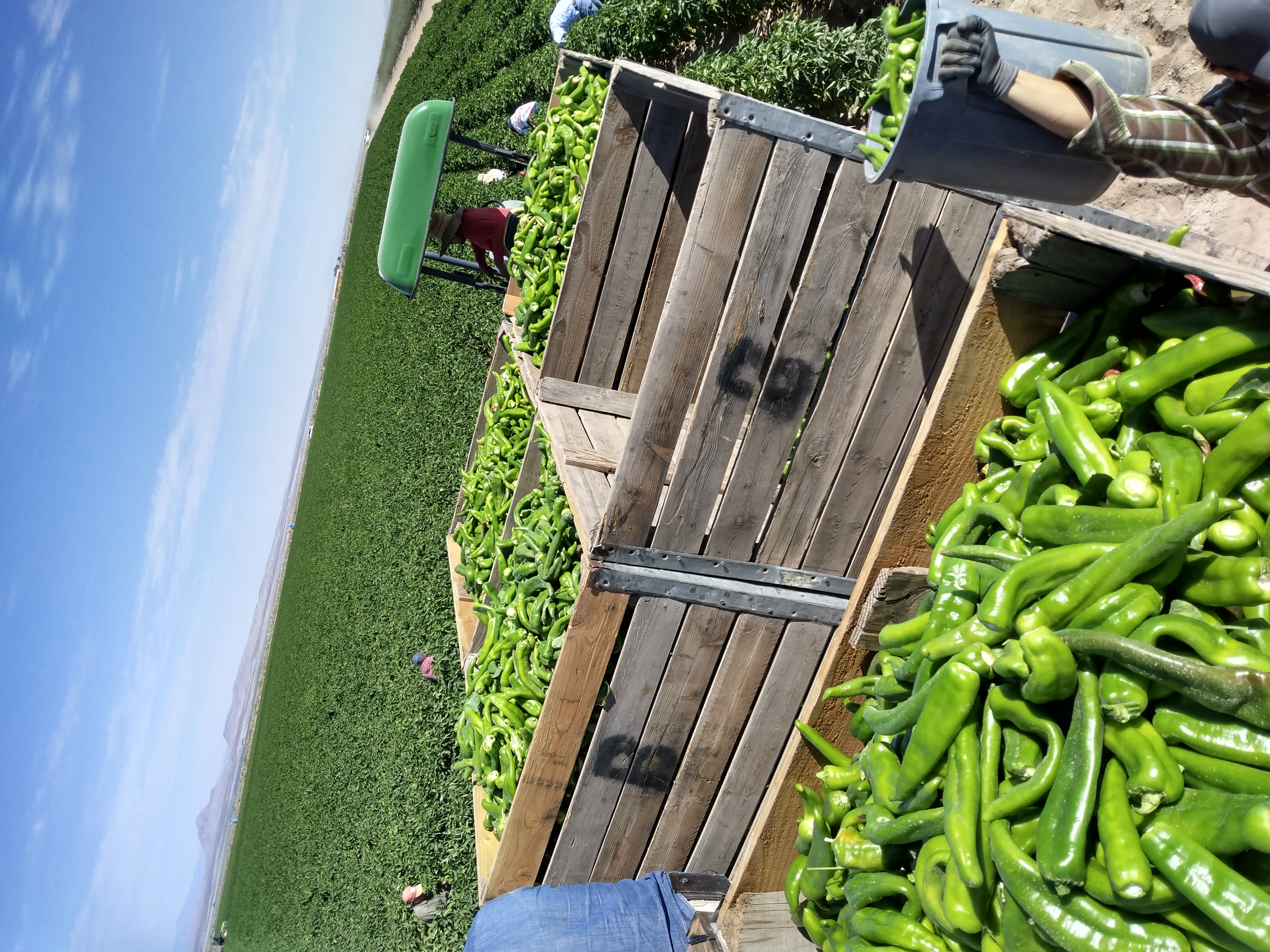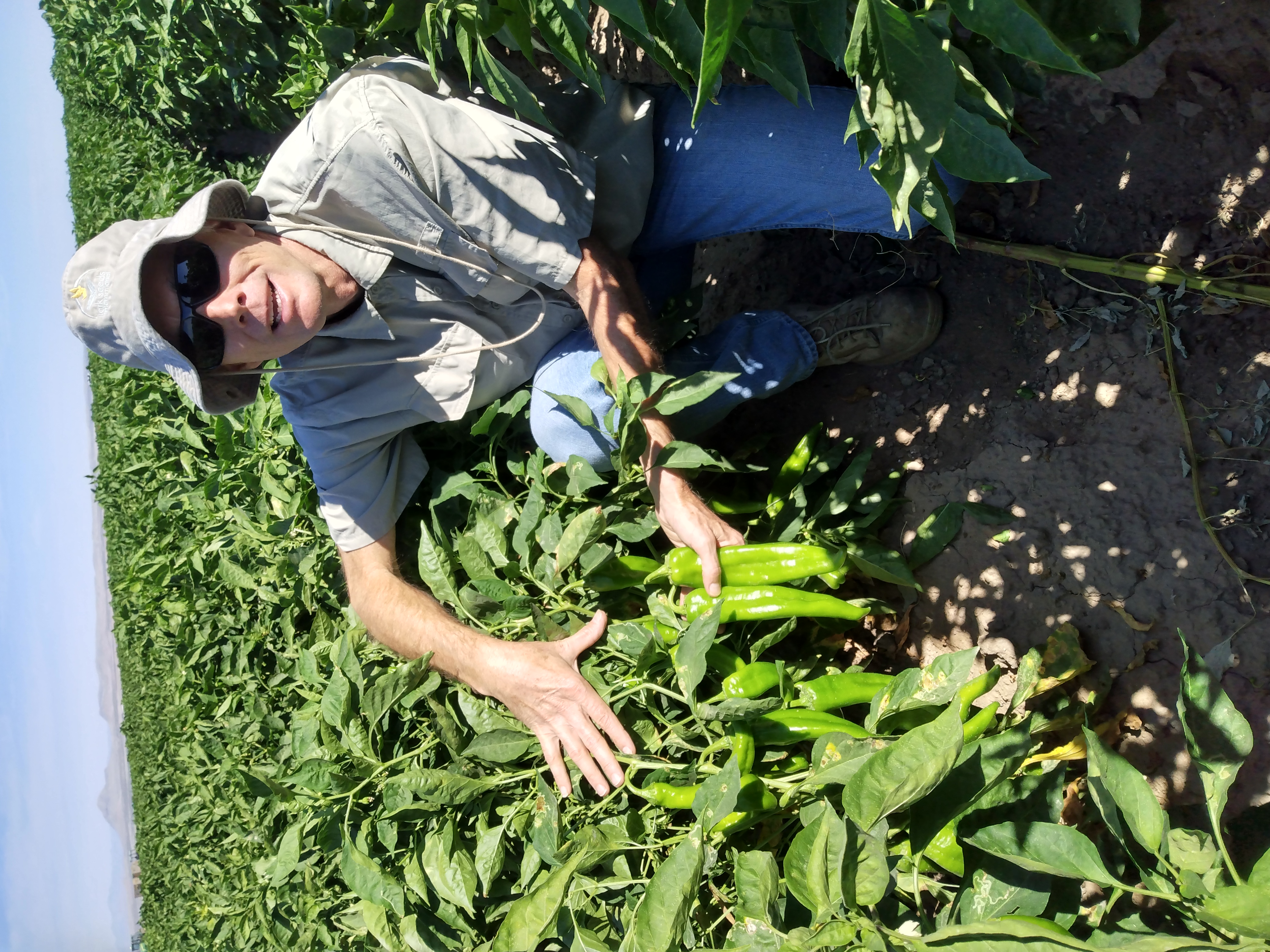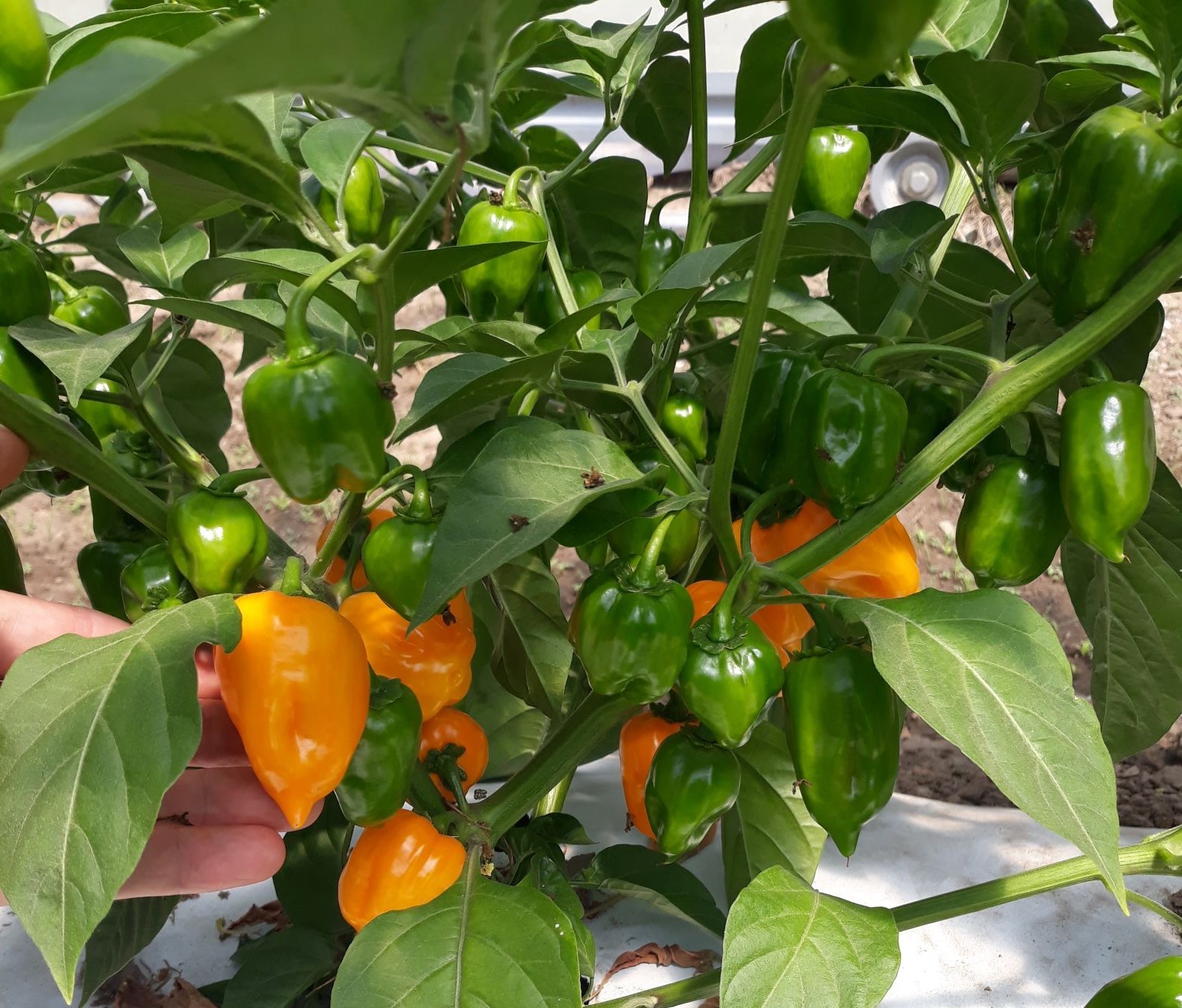Here is where you will learn about the collaborative project overview between New Mexico State University, Texas A&M, and local farmers. This page will navigate you through various components of the research being conducted in Dr. Soum Sanogo's lab at NMSU, in the field, and in the greenhouse.
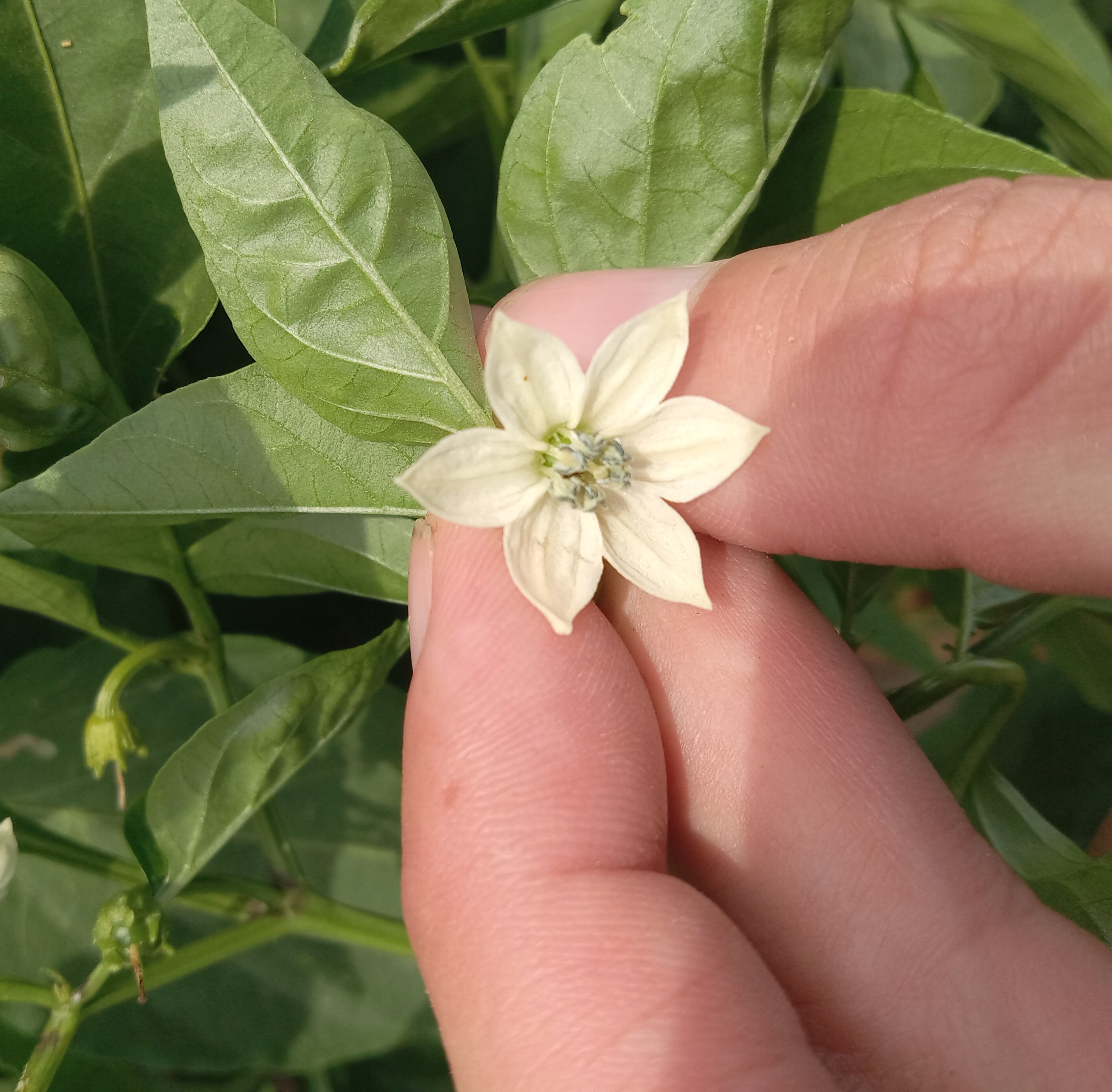
(Above) Chile pepper (Capsicum annuum) flower
Overview
Dr. Soum Sanogo was granted a $450,000 grant from the USDA - Specialty Crop Multi-State Program to investigate various chile pepper varieties for their tolerance or resistance to biological and environmental stresses. See the Vegetable Growers News (VGN) article to learn more.
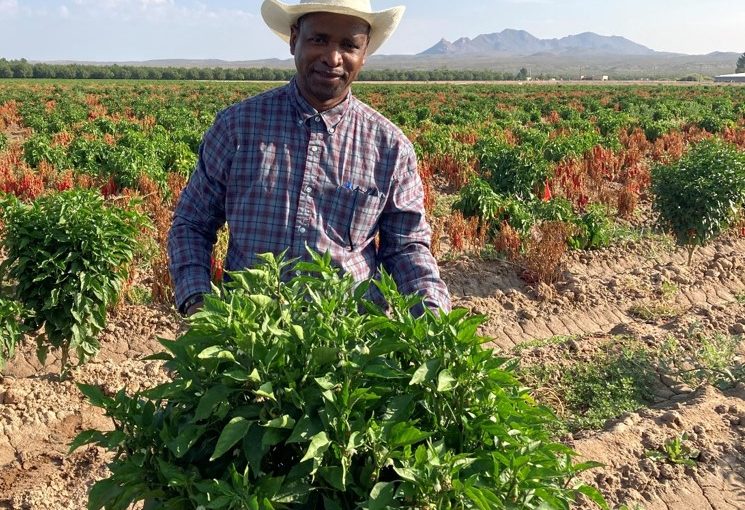
Dr. Soum Sanogo (above) standing in a chile field behind a healthy crop. In the background, you can see a field ravished by disease (brown, dead plants). The aim of this grant is to study the effectiveness of different varieties to the diseases spread throughout the fields in the southwest. Photo by: New Mexico State University
You can learn more about this project and the experiments associated with it by diving deeper into this website and clicking on the different pages presented on the right of the screen.
Lab Trials
Various lab experiments have been conducted to observe, record, and verify any resistance shown among the different Texas A&M advanced chile varieties. These include using petri plates with different media (water agar, acidified potato dextrose agar, etc.) and pathogens to test resistance against emerging chile seedlings, and also seeing what other biological organisms may play a role in resistance.
Greenhouse Trials
The greenhouse is a useful component between lab and field trials by replicating, as close as possible, the conditions that can be found in the field, but with utilization of a controlled environment. In these trials, Texas A&M advanced chile lines were grown in standard potting mix and inoculated with (introduced to) Phytophthora capsici. These varieties were then studied, observed, rated, and recorded for their potential resistance against the pathogen.
Field Trials
Field trials were conducted in the 2022 and 2023 growing season. These trials consisted of "scouting" the different fields in which these varieties were grown and recording the severity of any diseases, disorders, or insect pests that occurred in the field.
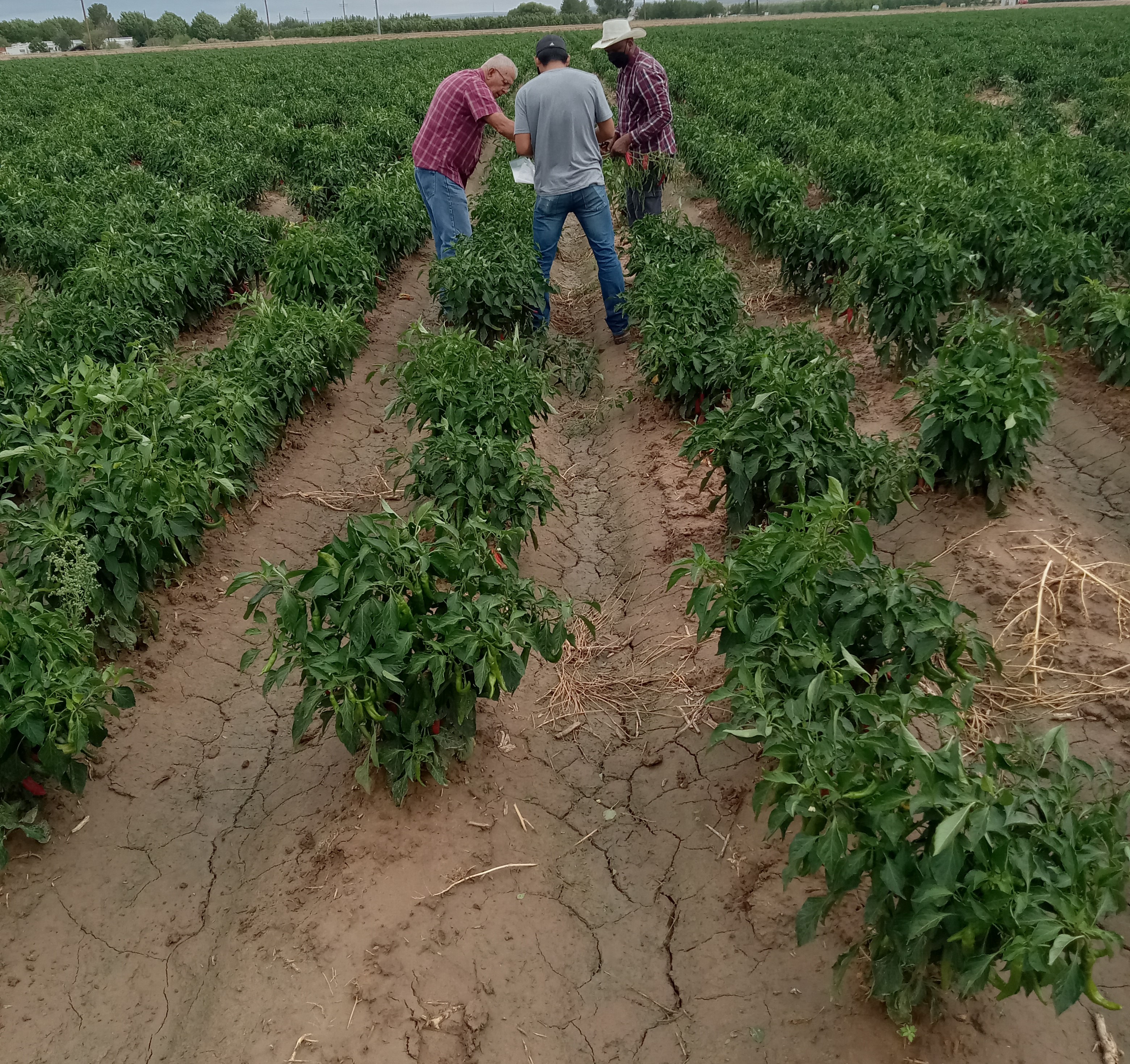
(Above) Working with local chile farmer, Vince Hernandez (Biad Chile Co.), collecting samples in one of his fields.
Microplots
The microplots are a designated location of in-ground pots located at NMSU's Leyendecker Research Station just outside of Las Cruces, NM. In these trials, each pot was planted with a different Texas A&M advanced line variety, replicated 4 times, and introduced to (inoculated with) either Phytophthora capsici, Rhizoctonia solani, or Verticillium dahliae and mortality rates were recorded to study any potential resistance to one or all of the three pathogens.
